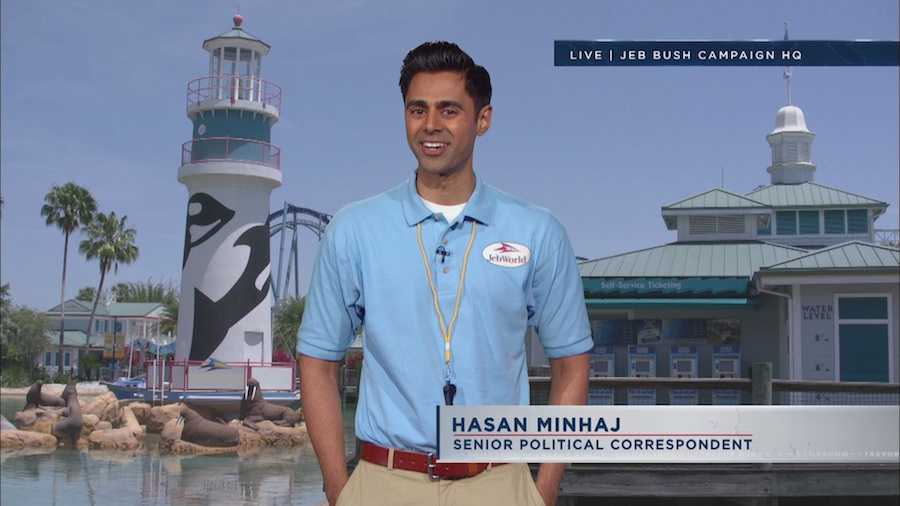
Hasan Minhaj Netflix special reflects on current political climate
“Once you go brown, lock that shit down.”
And with that, the entire auditorium went dark. Students exploded into cheers and applause as the multileveled stage lit back up in the bright yellow that began the show, on which only the words “Hasan Minhaj: Homecoming King” shone around the comedian’s silhouette. If one listened closely, the figurative drop of the microphone could be head through the tumult.
On Friday, Jan. 27, UC Davis alumnus Hasan Minhaj filmed his Netflix comedy special at the Robert Mondavi Center for the Arts. Backlit by an interactive stage, Minhaj established that his childhood in our northern California city was the reason for his success as a stand-up comedian and correspondent for The Daily Show on Comedy Central. In many ways, he was due for a homecoming.
Minhaj’s callbacks to the classic “Davis experience” — the art of biking while wearing a tuxedo and the fact that the closest mall, to current students’ dismay, has always been located across the causeway in Sacramento — all rang true for an audience that overflowed into a second showing that same night. His stage illustrated his thoughts and animated combinations of Nintendo characters to describe his little sister’s arrival to the United States, the white picket fences of Davis neighborhoods and the descending of stars and stripes of the American flag in Sam Spratt’s collection of Rockwell-esque vignettes, titled “New Brown America,” based on Minhaj’s life.
His attitude on the realities of growing up in an Indian-American family found a deep connection with an audience that rolled in laughter after a riff on a white television show called “The Slap,” a drama approaching a subject in a manner to which the majority of his fans of South Asian heritage could not relate.
In a coincidental occurrence, the show took place on the same day that President Trump signed the executive order banning immigrant entry from seven countries predominantly comprised with the those of Minhaj’s own faith. Minhaj even returned to New York over the weekend to find protesters, detained citizens and attorneys at JFK International Airport.
Many times in the performance as the camera zoomed in on his face, Minhaj would tell the true stories of his experiences with racism in America: How his family received a call that led to a hate crime in his front yard on Sept. 12, 2001, how his father disapproved of his marriage to a woman of Hindu faith and how, in an act of “mutual” understanding, his senior prom date’s mother turned him away at the door in favor of photographing a white boy with her daughter. These moments were personal and oftentimes unbearably relatable for a crowd of students who have experienced, and will continue to experience, similar circumstances.
But then, after subduing the audience with a monologue of personal heartache, the comedian would pelt his listeners with a tirade, phonetically critiquing the last name of his prom date’s current Indian boyfriend.
Upticks in energy like this kept the audience laughing, reflecting and responding to what Minhaj had to say, and mirrored the conversations students had with each other while in line for the show. Juxtaposing the seriousness of his father’s heart attack with his Pizza Hut commercial, of all things, inspired the audience to get up the next morning and fight the good fight, in preparation for whatever the Trump Administration could throw at them next. Minhaj was able to say what he needed to say and have it stick in a flux of humor and solemnity.
Minhaj’s performance was more than appropriately timed: this tour — which he had prepared even before the election — responds to the current political climate as a perfect example of our generation’s feelings for the future. His look into the past, full of AOL loading screens and landline telephones, reminds us of how we far we have come in the past 15 years in terms of language and technology and yet how far we have dug our heels into the ground in terms of race relations.
Written by: Emilie DeFazio — arts@theaggie.org



